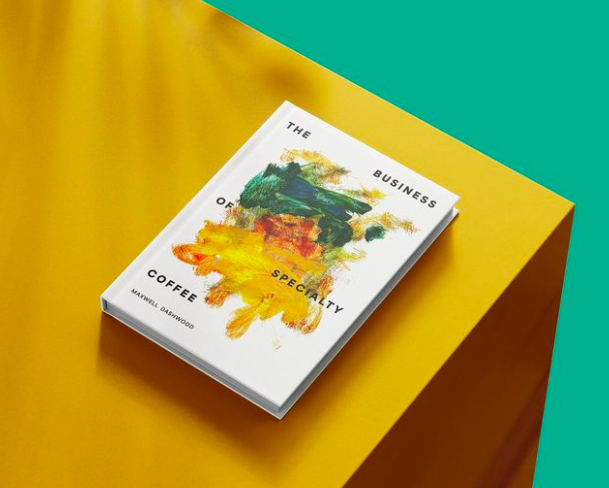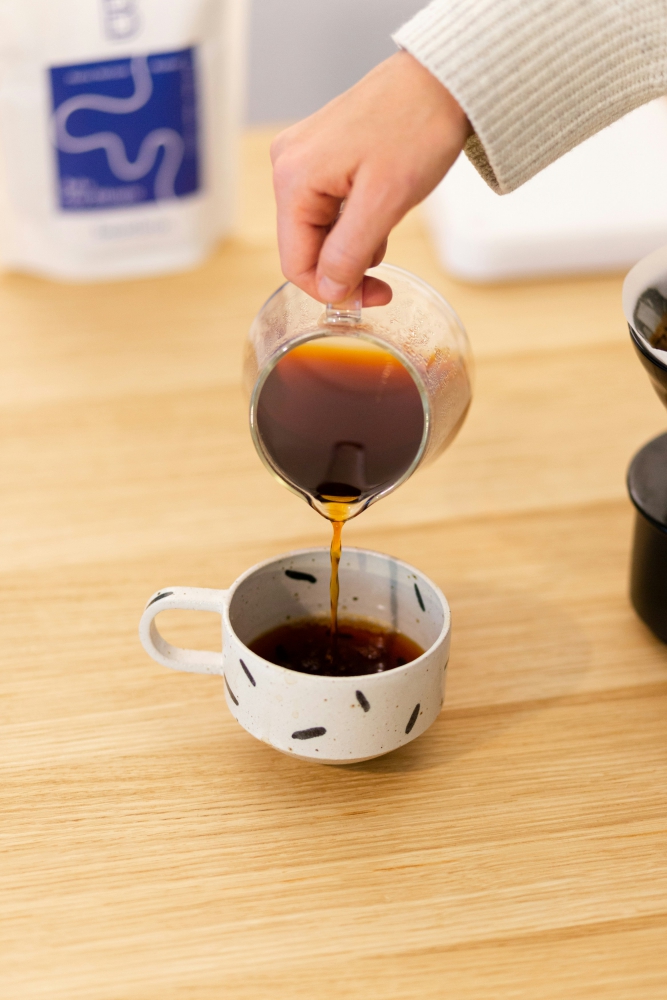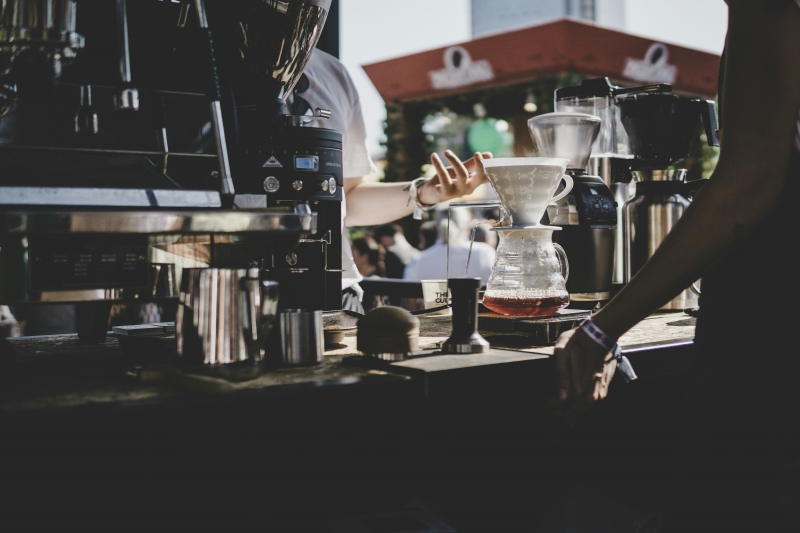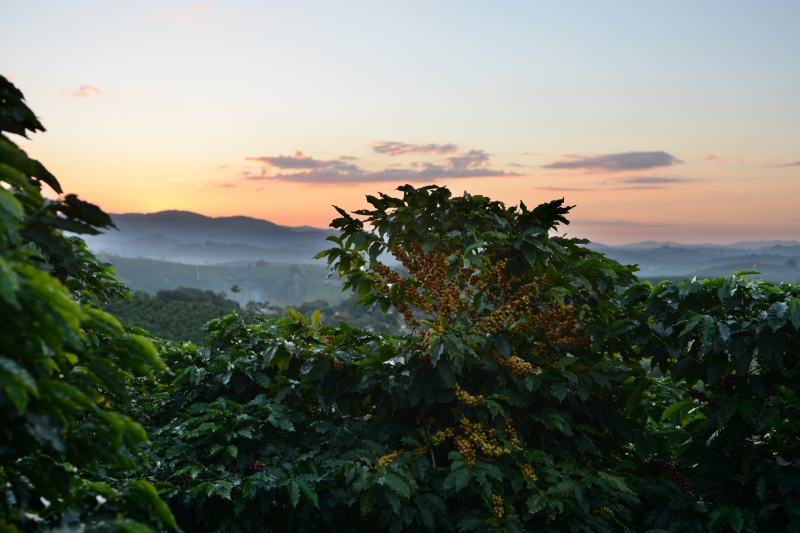Maxwell Colonna-Dashwood unpacks the idea that specialty coffee might well be a niche, but it's a niche that’s here to stay
Words by Maxwell Colonna-Dashwood, originally published in July 2022.
Maxwell has a new book out called The Business of Specialty Coffee. Check it out!

A key mantra for speciality coffee has for some time, at least since I got into it 15 years ago, been about accessibility and converting coffee drinkers to ‘better coffee’. This is only natural for a burgeoning rebellious movement. Of course you want to go out and grow the tribe and the audience and see where the realm of focusing on coffee as a complex culinary drink can go. A larger audience theoretically allows for much more exploration of the concept of pursuing flavour in coffee, as the size of the market directly impacts opportunity.

Photo by Bean Bros on Unsplash
With this goal in mind, I have always taken some issue with the idea of accessibility being the primary objective, and I have instead wanted to focus on engagement. The goal really is to engage those who may be interested, those who would like to explore the curiosity of coffee and those who may be delighted by the flavours on offer. Accessibility is part of this, but often I see the dumbing down of speciality to the point where it isn’t the same thing anymore in a desperate attempt to get everyone to like it.
Here’s the fact of the matter: Not everyone will! And that is ok.
Ultimate accessibility is about making something as easy as possible as well as, as broad as possible in appeal. By this, I mean that if accessibility is defined by people taking something up, then you are actually aiming for something to have the broadest appeal and adoption. I’m becoming increasingly convinced, we’re barking up the wrong tree by trying to convert all coffee drinkers.
The thing is, you go into a cafe already knowing what you want.
There's a house espresso blend that's been developed, either specialty or not, to have a broad appeal. So that the most number of people enjoy their flat whites. But then when someone is interested or asks a question about what’s in the hopper, then you’ve got an in! Cafes may have a more complex coffee ‘under the counter’ as it were. And then as a coffee professional you’ve got a chance to really engage, on a specialty level. Some cafes even have a freezer menu or the brew bar set up for pour-over coffee has often been used in the UK market, to present the goods to the consumers willing to invest the time.

Photo by Sabri Tuzcu on Unsplash
Accessibility in speciality coffee should really be about making the world of quality-focused coffee unpretentious. I get this and it is important. Having said that, coffee is already much more accessible than many other ‘specialty’ fields of interest, like whiskey for example or you know, becoming a ballerina. In terms of access to information, quality experiences and the monetary cost of developing the hobby/interest, speciality coffee is relatively accessible. Specialist fields rarely achieve this. Being accessible in a niche is at best about doubling the niche, rather than gaining global widespread adoption. And specialty coffee is most certainly still a niche market.
Anything that requires time investment, as well as a considerable amount of energy and learning from the individual will ultimately, in a wider context, remain specialised and niche. It’s not that everyone couldn’t pick it up as an interest, it’s that each person has a variety of interests in a world full of many, many subjects and experiences to focus on. It would be naive to think coffee was at the top of every person’s list.
An example I always use is of two board games: “Twister” and “Magic the Gathering”. The former is really easy to learn and that means it’s very accessible, but it also means its ongoing exploration is limited and it is in danger of getting boring. It then gets put away till the following family holiday. Magic the Gathering on the other hand requires a significant learning period at the beginning to even really start playing. This limits the audience size but the complexity also means that the ongoing engagement and reward is higher. I could name any niche hobby here. A lot of rewarding things do require a period of learning from a novice position.
It is also worth noting that no single approach dominates any field worth exploring, and in subjective taste and experience based fields this is mostly down to differing preferences. Speciality coffee’s mantra of accessibility can at times be mis-channelled as an ideological crusade, one where the potential new customer should be converted and they “will see the light if only they are presented with things in the right way”. The danger of this approach is the blindness it shows to other approaches as well as a blindness to tastes that are different to your own. I don’t think having ideological beliefs in coffee is a bad thing, but sometimes people take it too far and it can become disrespectful.
Fields typically become self fulfilling. I myself didn’t like traditional coffee profiles and when I tasted the boutique sector I was surprised and loved the flavours. In this regard coffee is particularly interesting with boutique lots tasting like a different beverage in many ways, and then there’s the addition of milk and sugar to get into. The complexity and rabbit hole nature of the movement also got me hooked. However in my time working bar and running my own coffee businesses and presenting coffee to friends and family it is clear that not everyone’s preferences match what speciality rewards as the ‘best’.
You might not like a Gesha coffee because it tastes more like a delicate, floral tea, and that’s what has become highly rewarded in the specialty coffee context. You are definitely entitled to that. It’s a strange construct!
When I allude to specialty coffee being a construct, I mean that the ‘best’ has been determined by experts in the field, valuing some aspects and flavours of coffee higher than others. When I did my Q-Graders course, a course designed to calibrate coffee professionals in tasting coffee, there were two wine experts in the group, and they absolutely flunked the qualification. Because even though they have objectively highly trained and skilled palates, they had no idea about the language and flavours around specialty coffee. Similarly for myself, a coffee ‘expert’, good versus bad wine. Cheap wine may taste vinegary and sour, but then as you move up you reach a point where, especially with wines over a certain price point, they all taste ‘good’. What sets them apart? The sommeliers clearly taste nuances in the extremely expensive ones, that I have no context for, that make them more valuable than others that also taste good to me. And rarity, of course comes in to play here, because if only a small amount is ever available, that drives the price up too. These fields of interest are exclusivity based. So specialty coffee can be seen as a bit elitist. A comment I found interesting in the comparison of wine and coffee, is that the wines never taste like a completely different drink, which is what happens when it comes to some high value coffees. They don’t taste like ‘coffee’ in a traditional sense. Again, it’s a difficult sell to a broad audience.

Of course, coffee is used as a daily comfort stimulant by most, and there is absolutely nothing wrong with this. In fact from a sustainability point of view most of the worlds coffee won’t be speciality and those holding speciality coffee up as the saviour, are misguided if it thinks it will solve the industry’s problems across the board. The whole industry matters, not just the boutique end.
Now, obviously I love the field of speciality coffee and think there is loads to shout about and offer up for both the community and for our customers to engage with. I have spent most of my career not only exploring it but presenting it to customers and it excites me where the boutique coffee movement has got to, along with the continued growth and interest in the space. There will also be a time, maybe now or in the near future where what was an embryonic movement matures in to an established boutique space, one that is “opt in” and “opt out” for each of us who come across it.
in summary, just because speciality coffee can be for everyone, doesn’t mean it is for everyone, and that’s ok.
Enjoy your next cup!
Some Coffee Definitions for Context
Specialty Coffee: First defined in 1974 by Erna Knutsen in an issue of the Tea & Coffee Journal. She used the word to describe coffee that was produced in a microclimate with high-quality and unique flavour profiles. The Coffee Quality Institute (CQI) has since labelled coffee as “specialty” when it is graded as 80 or above on the SCA 100-point scale by a certified coffee taster (such as a Q grader).
Q-Grader: CQI Q Graders are globally recognized and work across all aspects of the value chain.
This professional certification confers the skills and basic knowledge to perform coffee evaluations from farm to import to consumer-facing products. The Q Grader course, is offered for both arabica and robusta evaluation. Quality Evaluation education is a benefit at every point in the value chain. Because we speak the same language, fine and specialty coffee is recognized and producers are ultimately rewarded for their higher quality through better access to markets.
Perhaps the most exciting thing about Coffee Quality Institute education is that it is applied. Our community uses their skills to evaluate coffee quality to give producers the ability to know their coffee, to give sellers tools to describe their product accurately, and to give buyers confidence that they are purchasing the quality and flavour profile they expect.
Gesha Coffee: A varietal of the Coffea Arabica plant. Gesha coffee, also called Geisha, is one of the most exclusive coffees in the world. It originally came from Ethiopia and now the most well known farms are located in a specific region in Panama, but the seeds have also found successful homes throughout central America. It is well known for its incredibly distinct flavour often compared to earl grey tea and the aroma of jasmine. It is also one of the most expensive coffees in the world.
You can read the full Edition here: